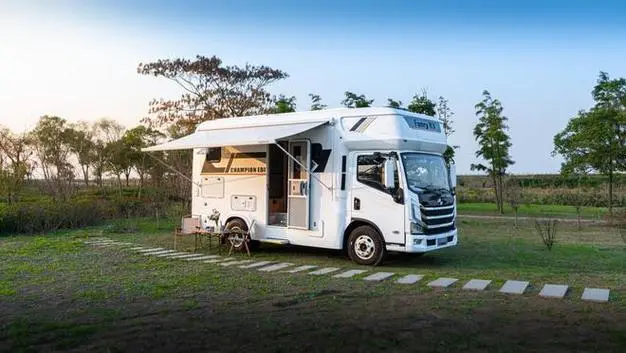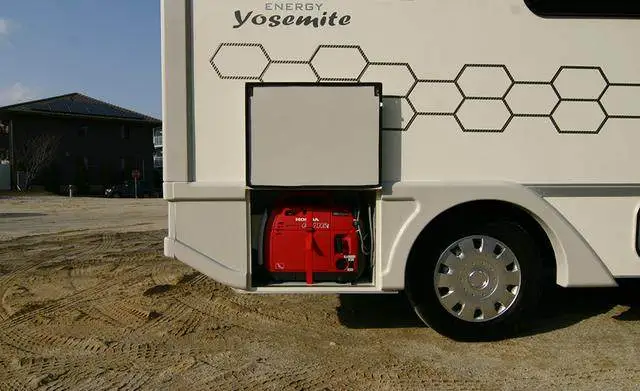What You Need to Know About Using Lithium Batteries in Your RV

Types of RV Batteries:
-
Lead-Acid Batteries: These are the most common and have been around for years. They are affordable but heavy and require regular upkeep, like checking water levels and cleaning terminals. While reliable, their lifespan is shorter than other types of batteries.
-
AGM (Absorbent Glass Mat) Batteries: A sealed, maintenance-free version of lead-acid batteries. They’re safer and more efficient but come with a higher price tag.
-
Gel Batteries: These use a gel electrolyte instead of liquid, making them safer and maintenance-free. However, they are sensitive to charging conditions and can be more expensive.
-
Lithium Batteries: The modern favorite for RVs. They’re lightweight, long-lasting, charge fast, and require minimal maintenance. Although more expensive initially, their benefits often justify the cost.
Why Lithium Batteries Are Ideal for RVs

Lithium batteries are increasingly popular among RV owners, and here’s why:
-
Longer Lifespan: Lithium batteries can last 10 years or more, significantly outlasting lead-acid batteries, which usually only last 3-5 years.
-
Lightweight: Lithium batteries are much lighter, improving fuel efficiency and making them easier to handle.
-
Fast Charging: They recharge quickly, meaning less waiting and more time enjoying your trip.
-
Low Maintenance: No need for water top-ups or terminal cleaning—lithium batteries are practically maintenance-free.
-
Consistent Power: Lithium batteries maintain steady voltage throughout their discharge cycle, unlike lead-acid batteries, which often see a power drop-off.
-
Eco-Friendly: With a longer lifespan and more efficient energy use, they have a smaller environmental impact.
When selecting a lithium battery for your RV, consider the following:
- Capacity (Ah): Higher amp-hours mean more stored energy for your appliances.
- Voltage (V): Most RVs use 12V batteries, but some setups may need 24V or 48V. Make sure to match your RV’s requirements.
- Cycle Life: Choose a battery with at least 2000 charge cycles for long-term use.
- Weight: A lighter battery helps with handling and fuel efficiency.
- Temperature Range: Ensure the battery can operate in the climate conditions you’ll encounter. Some have built-in heating for cold weather.
- BMS (Battery Management System): A quality battery should include a BMS to protect against overcharging, overheating, and deep discharging.
How Long Does an RV Lithium Battery Last?
On average, lithium batteries last 10-15 years or between 2000-5000 charge cycles, a huge improvement over lead-acid batteries. This extended lifespan means fewer replacements and lower costs over time.
Safe Charging Tips for Lithium RV Batteries
Charging safety is a concern for lithium batteries, so keep these tips in mind:
- Use the Right Charger: Always use a charger specifically designed for lithium batteries.
- Avoid Overcharging: Many lithium batteries come with overcharge protection, but it’s still good practice to monitor the process.
- Monitor Temperatures: Charge the battery in temperatures between 32°F and 113°F (0°C and 45°C). Extreme temperatures can affect performance.
- Check Connections: Make sure all connections are secure and free of corrosion.
- Storage Charging: For extended storage, charge the battery to about 50% and disconnect it.
How to Choose the Right Lithium Battery for Your RV
When selecting a lithium battery, consider these factors:
- Compatibility: Ensure the battery’s voltage matches your RV’s system (usually 12V, but could be 24V or 48V).
- Size: Make sure it fits in your RV’s battery compartment.
- Power Needs: Estimate your RV’s energy consumption to determine the required battery capacity.
- Budget: Although lithium batteries are expensive upfront, their long lifespan and low maintenance make them a cost-effective choice in the long run.
Tips for Buying a Lithium RV Battery
- Research Brands: Choose reputable brands with good customer reviews.
- Compare Specifications: Look for capacity, cycle life, weight, and other critical factors that meet your needs.
- Warranty: A strong warranty indicates a reliable product.
- Customer Support: Good customer service can be essential if issues arise.
Maintaining Your RV Lithium Battery
Keep your lithium battery in top condition with these tips:
- Regular Inspections: Check for damage or swelling and address issues immediately.
- Clean Connections: Keep terminals clean to prevent corrosion.
- Proper Storage: Store the battery in a cool, dry place when not in use and charge it to about 50%.
- Avoid Full Discharge: Partial discharges and recharges are better for lithium batteries.
- Monitor Performance: Watch for changes in performance, which could signal an issue.
Common Lithium Battery Issues and Solutions
Even with the best batteries, problems can occur. Here are some common issues:
- Battery Won’t Charge: This could be due to a faulty charger or loose connections.
- Battery Drains Quickly: Check for faulty cells or devices that may be drawing excessive power.
- Swelling: Stop using the battery immediately and contact the manufacturer.
- Unusual Sounds or Smells: This could indicate a serious problem; disconnect the battery and seek professional help.
- Inconsistent Power Output: Check the battery management system (BMS) and consult the manufacturer if needed.
Conclusion
Switching to lithium batteries can significantly improve your RV experience. With their long life, lightweight design, fast charging, and low maintenance, lithium batteries are a smart choice for any RV owner. By understanding their key features and proper care, you’ll get the most out of your investment.



